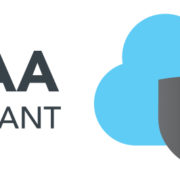5 Reasons You Need a Managed Service Provider with Experience in Healthcare Industry
The best way to avoid HIPAA violations in your IT network is to consider your managed service provider the same way your patients consider a medical specialist.
For instance, if your patient catches a bad viral infection, they probably won’t visit their accountant for medical advice The principle is the same for managed service providers. Because many specialize in certain markets, you will want to be sure to work with an MSP that has a proven record in the healthcare industry.
Without the guidance of an experienced MSP, you may find your data breached and your customers walking out the door.
 By September 2017, more than 221 major HIPAA breaches were reported to federal authorities, which was a 66% increase from 2016. 84% of these incidents were reported as hacking issues. With that seemingly unstoppable upward trajectory, it’s more important than ever to make sure that your managed service provider (MSP) has experience creating HIPAA-compliant networks.
By September 2017, more than 221 major HIPAA breaches were reported to federal authorities, which was a 66% increase from 2016. 84% of these incidents were reported as hacking issues. With that seemingly unstoppable upward trajectory, it’s more important than ever to make sure that your managed service provider (MSP) has experience creating HIPAA-compliant networks.
While HIPAA compliance is a major priority in healthcare systems and medical practices, sometimes the facts are overshadowed by all of the stress of adhering to the rules. The most important fact: HIPAA is designed to protect your patients. Other than the obvious goal of protecting their privacy, there are 5 very important business reasons to shore up your efforts to remain HIPAA-compliant.
 1. The Fines
1. The Fines
First, there are hefty fines associated with HIPAA violations, with up to $1.5 million dollars per violation, which can then be multiplied by how long the violation has taken place. Major breaches like the Anthem hacking incident are estimated to cost over $100 million.
 2. Patient Retention
2. Patient Retention
Second, and just as important, you run a high risk of losing your patients if their data is breached. 31% of consumers surveyed by the Ponemon Institute said they discontinued their relationships with the breached entity following a data breach.
 3. Authentication
3. Authentication
Human error and insider threats continue to play a huge role in data loss. One recent report showed that 74% of organizations feel vulnerable to insider threats. This is right in line with another industry report, which found that 70% of data center incidents were caused by human error.
Any person in your business that accesses medical records should have a unique user ID. This will ensure that a.) only the right people have access and b.) you can track who has accessed documents. Taking these proactive measures will help minimize human error and/or intentional threats.
 4. Encryption
4. Encryption
Your employees might be doing all the right things, but that may not matter if your data isn’t protected when in transit.
It’s a common activity to send a patient’s medical records to another office, for example. This is a pain point where you can be exploited. Encryption will ensure that data is safe moving across and beyond your network.
 5. Cloud Solutions
5. Cloud Solutions
If your MSP works with cloud solutions (as 90% of companies surveyed currently do), it’s important to make sure that the cloud setup meets the same standard as your network compliance. For this reason, RWA suggests working with a cloud-based program that is proven to be HIPAA-compliant.
What’s next?
 RWA has a proven track record working with medical and healthcare practices. We offer HIPAA compliance assistance, and we’ve partnered with an excellent company offering a complete and very affordable cloud-based compliance program for large and small practices, including a “BA-Specific” program for their business associates as well.
RWA has a proven track record working with medical and healthcare practices. We offer HIPAA compliance assistance, and we’ve partnered with an excellent company offering a complete and very affordable cloud-based compliance program for large and small practices, including a “BA-Specific” program for their business associates as well.
Looking for more info on securing your network to meet HIPAA standards? Give us a shout and we’d be glad to share more. No strings attached.











